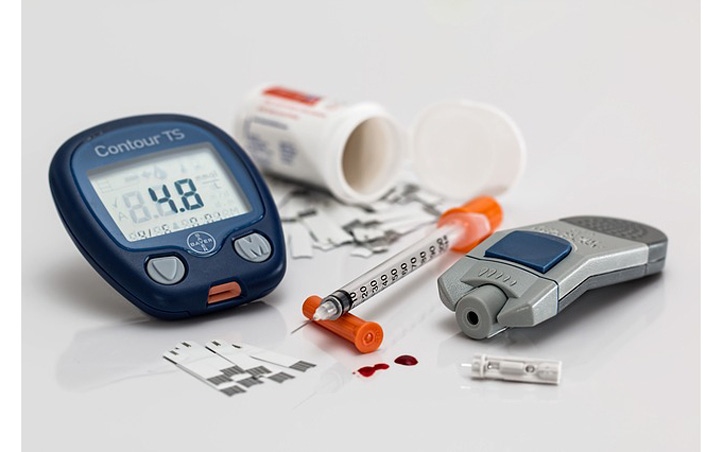Device makers focused on diabetes care are making strides toward a more effective ecosystem around digital care.
October 20, 2017

Diabetes is one of the most expensive chronic health conditions worldwide, and has become a favorite target of leading-edge clinicians and technologists touting the age of connected care.
"In general, we'll see more of the trend of digitalization to better manage conditions," said Chuck Gammal, a partner specializing in healthcare and medical technology at consultancy Simon-Kucher. "Diabetes is somewhat unique among chronic conditions in that it's very data-intensive."
Ironically, though the very data-intensive nature of diabetes care might suggest patients would clamor for platforms and care modules that get ever-more granular, that is not the case, according to William Polonsky, president of the San Diego-based Behavioral Diabetes Institute. In fact, Polonsky said, the notion of the "quantified self," so popular today with technology vendors selling trackers of all types—whether those gadgets are fitness trackers or network-connected glucose meters—might be a faulty assumption.
"The people who developed this idea of the quantified self seem to be assuming people want these numbers, that they want to be professional diabetics, that they don't already have busy lives and that this information is going to be perceived as useful as opposed to just annoying," Polonsky said.
In recent weeks, however, diabetes care vendors have made moves toward creating a more cogent ecosystem around digital care. Among the latest developments:
Mountain View, CA-based Livongo Health, which offers a hybrid technology and coaching platform, purchased Diabeto, the maker of a consumer-friendly connectivity device that plugs into the serial port on over 40 popular glucose meters. "The functionality Diabeto offers will allow Livongo to capture data from other glucose meters and will make it more convenient for primary care physicians to treat patients with Type 2 diabetes," the company said in a statement announcing the deal.
Caesarea, Israel-based DarioHealth, developer of a glucose monitoring system that utilizes a smartphone-connected meter, app, and cloud connectivity that enables patients and caregivers to view their data as discrete entries or as trending, was selected to participate in the HighTechXL accelerator program in Eindhoven, The Netherlands.
Basel, Switzerland-based Ascensia Diabetes Care announced a global innovation challenge aimed at fighting Type 2 diabetes for early-stage projects that "go beyond the helpful app," with a total prize purse of €200,000.
Polonsky will serve as one of the Ascensia challenge's judges, and said, "I want someone to propose something that will really surprise me. When I think about this stuff, I get kind of discouraged, and it isn't just that folks are reluctant to keep this kind of information, but primary care physicians are terrified when we talk about bringing more information to them. They don't have time, anyway.
"How do we have that a-ha light bulb go off that says, 'You're at risk, it's worth it for you to take action?' On the other hand, how do we provide people with information that says, 'You know what you've been doing the past week? It's working.'? It's a principle we call perceived treatment efficacy—when you help people see in some positive tangible short-term way that what they are doing is working, they get enthused."
Game Changer from Abbott?
FDA may have provided a linchpin to the emerging digital diabetes care ecosystem on September 27, when it approved Abbott's FreeStyle Libre Flash Glucose Monitoring System. The system uses a durable sensor patch the size of two stacked quarters worn on the back of an arm. The disposable sensors can be used for 10 days, and the system requires no finger stick to get a blood glucose reading.
Approved for use in Europe since 2014, the U.S. version, which provides current glucose level, trending arrow, and eight-hour glucose history in each scan, will be available by prescription before the end of the year. The initial version will include a dedicated scanner device that uses RFID and Near Field Communication protocols, but Chris Thomas, Abbott's director of biosensor technology, said U.S. users should soon also be able to use their smartphones to read their sensors via an app called LibreLink, already available in Europe. Compatible integrable apps for LibreLink are already emerging, such as Nutrino's FoodPrint, which will enable users to sync glucose data with the Nutrino app.
Thomas said some users have reported using the system up to 15 times per day, allowing them to see round-the-clock glucose level trends, but without having to halt their daily activities to get blood from a finger and go through the testing procedure.
"Diabetes is a noisy disease," he said. "It's constantly demanding people to ask 'What did I eat? What am I going to eat? How can I decide about having dessert after lunch?', or 'How much insulin do I want to have?' It comes with all this cognitive loading that we wanted to relieve people of having to do."
While trying to predict which technologies and care models will emerge in treating diabetes might be a fool's errand, both Polonsky and Matt Petersen, managing director for medical information at the American Diabetes Association, say those developing technology and care models for other chronic conditions could be well served by watching the diabetes ecosystem mature.
"We all do have similar issues around how hard it is to have a self-managed disease, but we are also starting to see how technology can help," Petersen said. "I think we can all be learning from each other."
"I think in many ways what we are doing in diabetes is light years ahead of other chronic illnesses," Polonsky said. "I mean light years. It took us decades—took me decades—to convince people we are talking about a behavioral issue and if we can help people get engaged, that can make all the difference in the world."
About the Author(s)
You May Also Like


